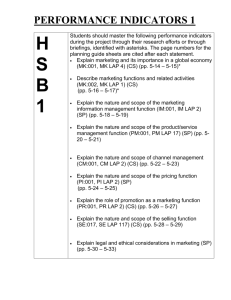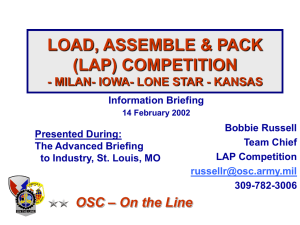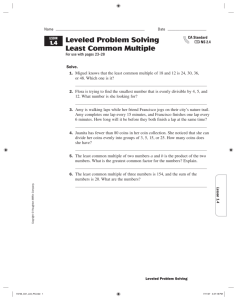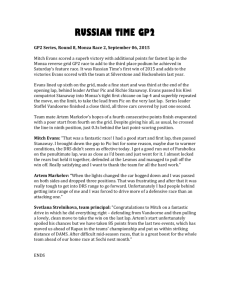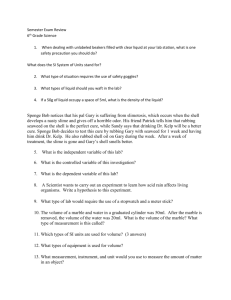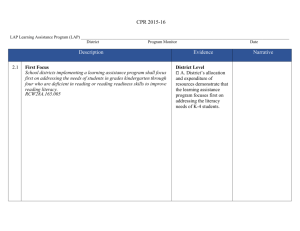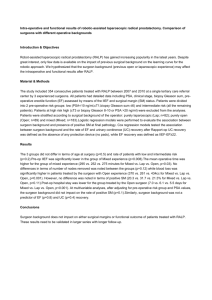Does the management of the distal ureter at Laparoscopic
advertisement
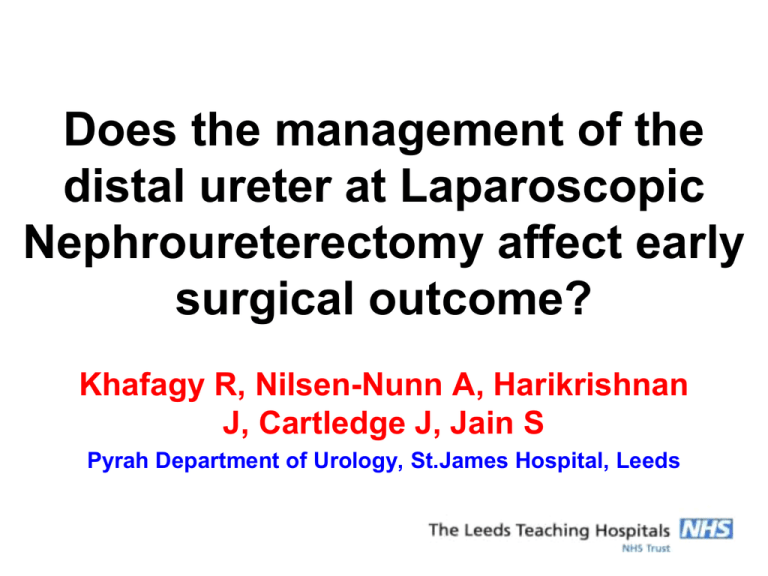
Does the management of the distal ureter at Laparoscopic Nephroureterectomy affect early surgical outcome? Khafagy R, Nilsen-Nunn A, Harikrishnan J, Cartledge J, Jain S Pyrah Department of Urology, St.James Hospital, Leeds Materials & Methods • 55 patients: – Age range 47 – 83 (median 71 yrs) – 52.5 % were male • 15 patients had a prior history of bladder TCC • Post-op comparisons were made between the 3 different operative groups: – Laparoscopic only (LAP ONLY) – Laparoscopic with an open lower end dissection outside of the bladder (LAP EXTRA) – Laparoscopic with opening of the bladder (LAP TRANS) • LAP ONLY: 32 patients – – – – Median stay 6 days 5 patients complications before discharge 9 patients had complications within 30 days There were 5 deaths by 12 months • LAP TRANS: 12 patients – Median stay 7 days – 1 patient had complication before discharge – There were no deaths by 12 months • LAP EXTRA: 11 patients – Median stay 7.5 days – 4 patients had complications within 30 days – There was 1 death by 12 months Discussion • Short term data suggests there is no difference in morbidity between each of the 3 approaches. • The comparative oncological outcomes between the three approaches requires longer patient follow up • Twelve month cancer mortality is higher for the LAP ONLY group perhaps suggesting an early oncological difference between this and the other two more radical approaches. • Should there be improved survival from undertaking the LAP TRANS approach, this would suggest that approach should be adopted more widely

